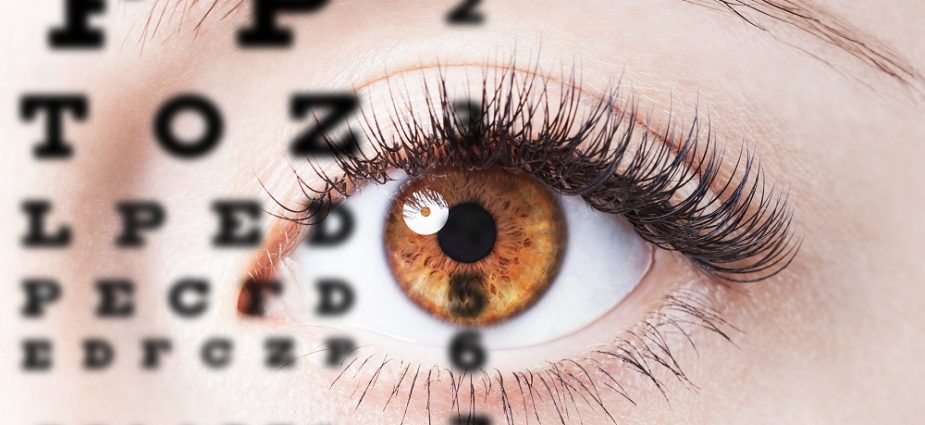Your eyes are among the most precious organs in your body, yet many people take them for granted until problems arise. Good eye health doesn’t happen by accident—it’s the result of everyday habits, smart lifestyle choices, and regular care. Whether you spend hours in front of a screen, drive long distances, or enjoy outdoor activities, maintaining strong vision and healthy eyes should be a lifelong goal.

Eye health refers to the overall well-being of your visual system, including your eyes, optic nerves, and the parts of your brain responsible for vision. Keeping these parts healthy ensures clear sight, comfort, and protection from diseases such as glaucoma, cataracts, and macular degeneration. Like other aspects of health, prevention is always better than cure when it comes to your eyes.
Many factors can negatively affect eye health, some of which you might not even notice until your vision begins to change. Common threats include:
Digital Eye Strain: Prolonged use of phones, computers, and tablets can cause dryness, blurred vision, and headaches.
UV Exposure: Unprotected exposure to sunlight can damage the retina and increase the risk of cataracts.
Poor Diet: Lacking essential nutrients, especially vitamins A, C, and E, can weaken your eyes over time.
Smoking: Smoking reduces blood flow to the eyes and increases the risk of vision loss.
Aging: As we grow older, our eyes naturally change, making them more vulnerable to certain conditions.
Understanding these risks allows you to take preventive steps early.
Nutrition plays a powerful role in eye health. Foods rich in antioxidants, lutein, and omega-3 fatty acids can strengthen the eyes and prevent damage. Include leafy greens like spinach and kale, bright-colored fruits, nuts, seeds, and oily fish in your meals. A balanced diet supports the eyes just as it supports the heart or brain.
To reduce digital strain, follow the 20-20-20 rule: every 20 minutes, look at something 20 feet away for 20 seconds. This simple routine relaxes your eye muscles and keeps them from overworking.
Dry eyes are a common symptom of dehydration. Drinking enough water each day ensures that your tear ducts produce sufficient moisture to keep your eyes comfortable and clear.
Your eyes need rest to recover from daily stress and exposure to light. Lack of sleep can lead to puffiness, redness, and even twitching. A good night’s rest helps maintain long-term eye health and clear vision.
Sunglasses are not just a fashion accessory—they protect your eyes from harmful ultraviolet (UV) rays. Choose a pair that blocks 100% of UVA and UVB rays to reduce your risk of cataracts and other UV-related damage.
Just like other muscles in your body, your eyes benefit from gentle exercise. Simple eye movements can improve flexibility and focus. Try slowly rotating your eyes clockwise and counterclockwise, or focusing on distant objects after close-up work. Palming—gently covering your eyes with your hands for a few minutes—helps relax them and reduces strain.
Taking short breaks during screen use and practicing mindfulness can also relieve tension in the eyes and the surrounding muscles. These small habits can go a long way toward improving your overall eye health.
Even if you have perfect vision, regular eye exams are essential. An optometrist can detect early signs of disease before you notice any symptoms. Many serious eye conditions develop slowly and without pain, making early detection the key to prevention and treatment.
Adults should schedule comprehensive eye exams every one to two years, while children and seniors may need more frequent visits. Maintaining this routine ensures that your eyes remain in top condition and that corrective measures are taken early if needed.
With the rise of digital technology, many people now spend more than half their waking hours in front of screens. This lifestyle can affect eye health in multiple ways, including increased dryness, fatigue, and blurred vision.
To protect your eyes:
Adjust screen brightness to match the lighting in your room.
Position screens about an arm’s length away and slightly below eye level.
Blink often to keep your eyes moist.
Use blue light filters, especially in the evening, to reduce exposure to harsh light.
Creating an eye-friendly workspace helps reduce the strain caused by modern digital habits.
Your daily choices have a lasting effect on your vision. Here are a few lifestyle habits that can enhance eye health naturally:
Quit Smoking: Smoking restricts oxygen to the eyes, increasing the risk of macular degeneration and cataracts.
Maintain a Healthy Weight: Being overweight can lead to diabetes, which in turn can cause diabetic retinopathy, a serious eye condition.
Exercise Regularly: Good circulation improves oxygen flow to the eyes and helps remove toxins.
Manage Chronic Conditions: Conditions like high blood pressure and diabetes should be monitored closely, as they can affect the small blood vessels in your eyes.
Healthy living is not just about fitness or appearance—it’s also a cornerstone of good vision.
If you experience sudden changes in vision, frequent headaches, eye pain, or flashes of light, consult a professional immediately. Early diagnosis can prevent further complications. Remember, your eyes rarely heal themselves once serious damage occurs, so timely care is essential for preserving long-term eye health.
Both young children and older adults need special attention when it comes to eye health. Kids may not realize they have vision problems, which can affect learning and development. Regular screenings can identify issues early. Seniors, on the other hand, face higher risks of cataracts and glaucoma. Encouraging both age groups to follow healthy habits—from wearing sunglasses to eating nutritious foods—can make a big difference.
Caring for your eyes should be as natural as brushing your teeth or exercising. It’s not just about seeing clearly today—it’s about protecting your sight for the future. By adopting small yet powerful habits such as eating well, staying hydrated, getting regular checkups, and practicing good screen hygiene, you can maintain strong vision throughout life.
Copyright © Created By Digital Mix, All Rights Reserved.